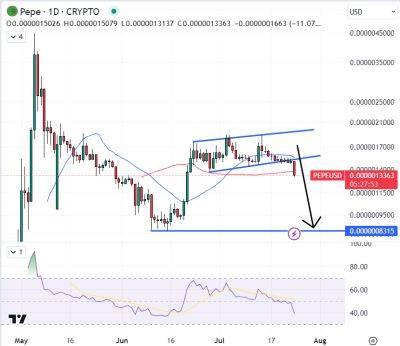RBI lists risks of stablecoin for developing economies, calls for global regulation
Stablecoin has a lot of potential to harm emerging markets and developing economies, the Reserve Bank of India (RBI) claimed in its latest Financial Stability Report, released June 28. The report listed six threats that stablecoin presents.
The RBI has been a steadfast critic of cryptocurrency, but it was particularly articulate about the problems it sees with stablecoin “from an EMDE [emerging markets and developing economies] perspective.” It listed six specific problems, even though:
A stablecoin could threaten an EMDE through currency substitution, as its underlying assets are generally denominated freely convertible foreign currency, the report claimed. The “cryptoisation” of the economy that could result from large-scale stablecoin adoption could lead to currency mismatches “on the balance sheets of banks, firms, and households.”
News Alert | RBI Financial Stability Report: Governor Shaktikanta Das on importance of tech, opportunities for growth and global cooperation among regulators #RBIFinancialStabilityReport #RBI @RBI @DasShaktikanta pic.twitter.com/D5dwkYcjwn
An EMDE central bank could face problems setting the domestic interest rate and liquidity condition due to the presence of stablecoin in the economy, the RBI continued. Furthermore, the “decentralised, borderless, and pseudonymous characteristics of crypto-assets […] make them potentially attractive instruments to circumvent capital flow management measures.”
By presenting an alternative to the domestic financial system, stablecoin could interfere with banks’ ability to mobilize money and create credit by undermining credit risk assessment. Finally, the report said, peer-to-peer transactions are hard to track, which could increase the potential for their
Read more on cointelegraph.com






















